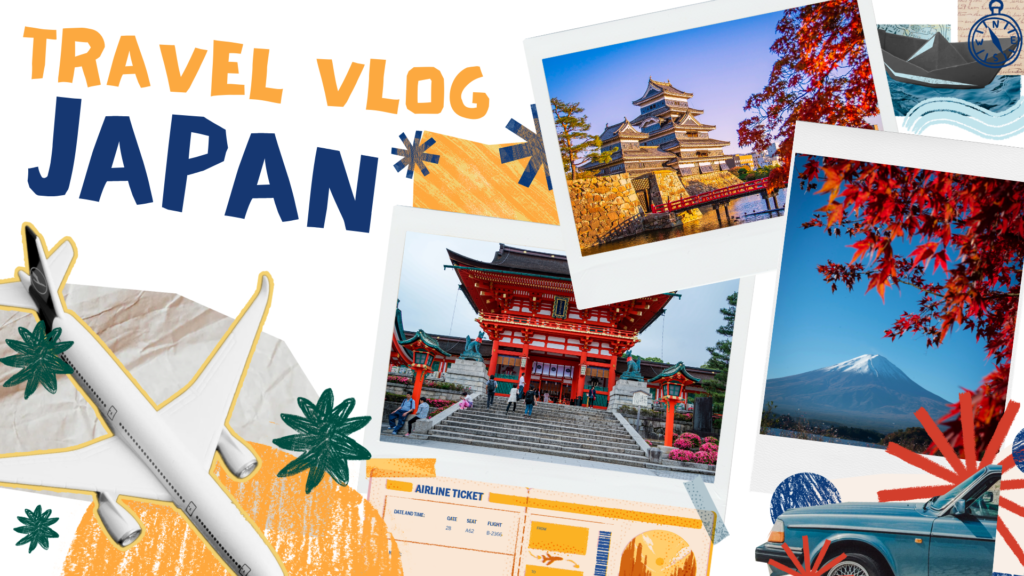Japan is a country of remarkable contrasts. It is a place where ancient traditions seamlessly coexist with cutting-edge technology. From the tranquil Zen gardens of Kyoto to the neon-lit streets of Tokyo, Japan offers a unique cultural tapestry that appeals to travelers seeking diverse experiences. Whether you’re drawn to its historical temples, futuristic innovations, natural beauty, or culinary delights, Japan has something for everyone. Let’s explore how Japan perfectly blends tradition and modernity to create an unforgettable travel destination.
1. Historical Heritage: The Heart of Tradition
Japan’s rich history and cultural heritage are deeply rooted in its ancient traditions. The country is home to countless temples, shrines, and historical landmarks that tell the story of its fascinating past.
Kyoto – The Cultural Capital
Kyoto, often referred to as the heart of traditional Japan, is a treasure trove of cultural gems. The city boasts over 2,000 temples and shrines, including the iconic Kinkaku-ji (Golden Pavilion) and the serene Ryoan-ji with its famous Zen rock garden. Kyoto’s Gion District offers a glimpse into the world of geishas, where traditional tea houses and wooden machiya buildings line the streets.
Nara – The Ancient Capital
Nara, Japan’s first permanent capital, is another destination steeped in history. The Todai-ji Temple, home to a giant bronze Buddha statue, and the sacred Kasuga-taisha Shrine, known for its hundreds of bronze and stone lanterns, are must-visit sites. The friendly deer roaming freely in Nara Park add a charming touch to this historical city.
Himeji Castle – A Samurai Legacy
The magnificent Himeji Castle, also known as the “White Heron Castle,” is a UNESCO World Heritage site and a masterpiece of Japanese feudal architecture. Its intricate design and historical significance make it a symbol of Japan’s samurai heritage.
2. Modern Marvels: Innovation at Its Best
While Japan honors its traditions, it is also a global leader in technology and innovation. The country’s modern cities and futuristic advancements showcase its forward-thinking spirit.
Tokyo – The Futuristic Metropolis
Tokyo, Japan’s capital, is a bustling hub of innovation and modernity. The city is famous for its vibrant districts, including Shibuya, with its iconic scramble crossing, and Akihabara, a paradise for tech enthusiasts and anime fans. For panoramic views of the city’s skyline, head to the Tokyo Skytree, one of the tallest structures in the world.
Odaiba – A High-Tech Wonderland
Odaiba, an artificial island in Tokyo Bay, is a testament to Japan’s technological prowess. Attractions like the futuristic TeamLab Borderless museum and the life-sized Gundam statue draw visitors of all ages. Odaiba also offers a glimpse into Japan’s automotive advancements at the Toyota Mega Web.
Shinkansen – The Bullet Train Experience
Japan’s high-speed bullet trains, or Shinkansen, are an engineering marvel. Traveling at speeds of up to 320 km/h, they connect cities across the country with unparalleled efficiency. The trains are a symbol of modernity, offering a seamless travel experience with comfort and precision.
3. Natural Beauty: Where Serenity Meets Adventure
Japan’s natural landscapes are as diverse as its culture, offering a mix of serene beauty and adventurous escapes. The country’s four distinct seasons add a magical touch to its scenery.
Mount Fuji – The Iconic Peak
No trip to Japan is complete without a visit to Mount Fuji, the country’s tallest mountain and a UNESCO World Heritage site. The iconic peak is a symbol of Japan and attracts climbers and photographers from around the world. For a more relaxed experience, visit Lake Kawaguchi to enjoy stunning views of the mountain reflected in the water.
Cherry Blossoms – A Springtime Spectacle
Spring in Japan is synonymous with sakura (cherry blossoms). Parks like Ueno Park in Tokyo and Maruyama Park in Kyoto come alive with pink and white blooms, creating a magical atmosphere. Hanami, the tradition of flower viewing, is a cherished cultural practice that brings families and friends together.
Hokkaido – A Winter Wonderland
For those who love winter sports, Hokkaido is a paradise. Known for its powdery snow, the region offers world-class skiing and snowboarding resorts. The Sapporo Snow Festival, held annually in February, showcases stunning ice sculptures and attracts visitors from across the globe.
4. Culinary Delights: Tradition Meets Innovation
Japanese cuisine is a delightful blend of traditional flavors and modern twists. From centuries-old recipes to creative fusion dishes, Japan’s culinary scene is a gastronomic adventure.
Sushi and Sashimi – Art on a Plate
Sushi, a global favorite, originated in Japan and continues to be a symbol of its culinary artistry. Visit Tokyo’s Tsukiji Fish Market or a traditional sushi bar to savor the freshest seafood. Sashimi, thinly sliced raw fish, is another must-try delicacy that highlights Japan’s dedication to quality and presentation.
Ramen – A Bowl of Comfort
Ramen, a popular Japanese noodle soup, comes in various regional styles. From the rich, pork-based broth of Tonkotsu ramen in Fukuoka to the soy-based flavors of Tokyo ramen, this dish reflects the diversity of Japan’s food culture.
Modern Takes on Cuisine
Japan’s food innovation extends to quirky and modern creations, such as rainbow-colored cotton candy in Harajuku and intricate pastries that resemble works of art. The blend of traditional ingredients with modern techniques ensures a unique dining experience.
5. Cultural Harmony: Festivals and Traditions
Japan’s festivals and traditional practices highlight its cultural harmony, where ancient rituals are celebrated alongside contemporary festivities.
Traditional Festivals
- Gion Matsuri in Kyoto: A month-long summer festival featuring grand floats and traditional music.
- Awa Odori in Tokushima: A lively dance festival that celebrates community spirit.
- Setsubun: A traditional event marking the arrival of spring, where participants throw beans to ward off evil spirits.
Modern Celebrations
Japan’s modern culture is reflected in events like the Tokyo Game Show and Anime Japan, which celebrate the country’s contributions to global pop culture. These events attract fans of video games, manga, and anime from around the world.
6. The Japanese Way of Life: Harmony and Respect
The essence of Japan lies in its people and their values. The concept of wa (harmony) is deeply ingrained in Japanese culture, influencing everything from interpersonal relationships to architectural design.
- Omotenashi: The Japanese approach to hospitality ensures that guests feel genuinely welcomed and cared for.
- Minimalist Aesthetics: Traditional Japanese design emphasizes simplicity and natural materials, as seen in tea houses and Zen gardens.
- Respect for Nature: Practices like forest bathing (shinrin-yoku) and sustainable living reflect Japan’s deep respect for the environment.
Conclusion: A Journey Like No Other
Japan’s seamless blend of tradition and modernity creates a travel experience unlike any other. It’s a country where centuries-old customs coexist with cutting-edge technology, and serene natural beauty complements bustling urban life. Whether you’re exploring ancient temples, marveling at futuristic innovations, or savoring its culinary delights, Japan offers endless possibilities for discovery and wonder.
As you plan your journey to Japan, let the contrasts and harmonies of this fascinating country inspire you. Whether you’re a history buff, a tech enthusiast, a foodie, or a nature lover, Japan is sure to leave an indelible mark on your heart.


